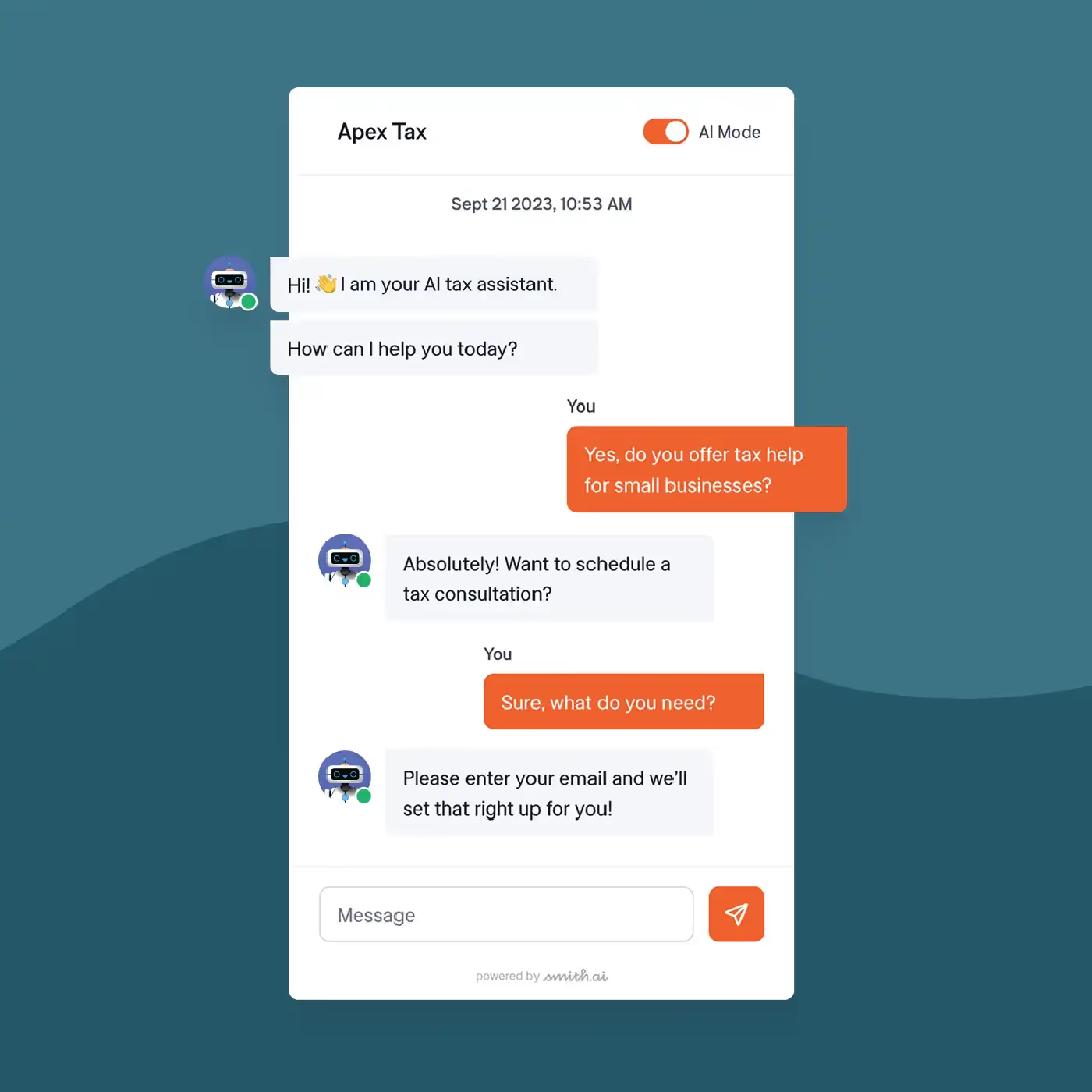Enriching Customer Service: The Harmonious Blend of Human Empathy and AI Precision
Enriching Customer Service: The Harmonious Blend of Human Empathy and AI Precision

Small and medium-sized businesses (SMBs) stand as the cornerstones of our communities. Their services, ranging from plumbing and painting to legal work, serve as essential threads weaving our societies together. While the spotlight often shines on AI's integration into larger corporations, the marriage of AI and human interaction holds tremendous promise for enhancing how SMBs engage with their customers. I co-founded Smith.ai because I saw an opportunity to seamlessly combine the innate qualities of human empathy with the precision of AI technology. What we’ve found in our seven years of operation is that this balance has raised the bar for customer experience.
The Power of Human Empathy in Customer Service
At Smith.ai, we understand that no algorithm can replicate the human ability to empathize. Whether it's deciphering a customer's subtle frustration or detecting their willingness to settle a dispute, our agents create genuine connections that resonate on a personal level. Empathy bridges the gap between businesses and their customers, fostering trust and loyalty that goes beyond transactions.
One recent instance involved a distressed homeowner who urgently needed an air conditioner repaired during a summer heat wave. Our compassionate agent not only arranged a swift appointment but also lent a patient ear, easing the customer's stress. This human touch transformed a mundane service call into a comforting experience, etching the HVAC company in the customer's memory.
AI Precision in Customer Service
Our agents serve many different types of businesses, but they always feel like a natural extension, not a third-party operator. How? By relying on the precision of AI. We have meticulously trained our AI algorithms to understand the nuances of different customer interactions. This tailored training equips our AI to provide accurate and relevant information promptly to agents.
Take the word “estate” as an example. It has a very different meaning in a legal context (estate law) than it does when purchasing real estate. Buying real estate is generally something positive and exciting in a person's life, whereas handling wills and trusts can be emotionally burdensome. Consider the surge in people creating their wills during the pandemic as they were bombarded with daily reminders of their own mortality.
If AI is not properly trained, it could conflate these two situations, which could lead to uncomfortable conversations (perhaps downright offensive) and lost customers. Just imagine a potential client of an estate law firm: They’re looking for help managing the estate of a parent who recently passed away. They call or chat into an estate law firm, and an AI bot congratulates them, under the misunderstanding or misguidance that they’re inquiring about real estate. Buying a new home may be worthy of congratulations, but the actual matter at hand isn’t. And we all know what is said about the power of first impressions.
Yet, thanks to meticulous training and refinement over time, I’m thankful to say we don’t find ourselves in these situations. We provide our agents AI tools that are sophisticated enough to grasp these nuances, and there’s still always an agent in the driver’s seat. AI isn’t just a plug-and-play solution; it takes precise and constant tooling. With customers more sensitive than ever to their experiences with businesses, there’s too much at risk to be cavalier, even if the matter isn’t quite so severe.
Achieving Synergy: Blending Human and AI Strengths
Our distinctive approach combines human operators with AI assistance, each playing to their strengths within regulated boundaries. Human agents, guided by AI prompts, seamlessly navigate interactions, with customers benefiting from the precision of AI (agents always have the right answer) and the warmth of human empathy (agents consider the customers’ feelings). This synergy results in conversations that conclude more harmoniously with the customer's emotions and desires.
Understanding customer context and urgency stands at the core of effective customer service. Our human operators excel in deciphering non-verbal cues, grasping unspoken concerns, and addressing sensitive matters with tact. Such nuanced understanding is a realm where AI's precision finds its most complementary counterpart: human empathy.
In a world driven by rapid technological advancement, customers now seek efficiency without sacrificing personalization. At Smith.ai, we believe that both humans and AI need to be involved to meet this paradigm shift. As technology continues to evolve, so do our methods. The AI capabilities we offer today are merely the foundation for what lies ahead. We remain committed to refining our AI's abilities and enhancing the symbiotic relationship between human operators and technology. As we forge ahead, I invite you to explore with us the territory of human-AI collaboration that we’re charting, to discover so much more of the untapped potential that lies within.
Take the faster path to growth. Get Smith.ai today.
Key Areas to Explore

Your submission has been received!













.svg)



